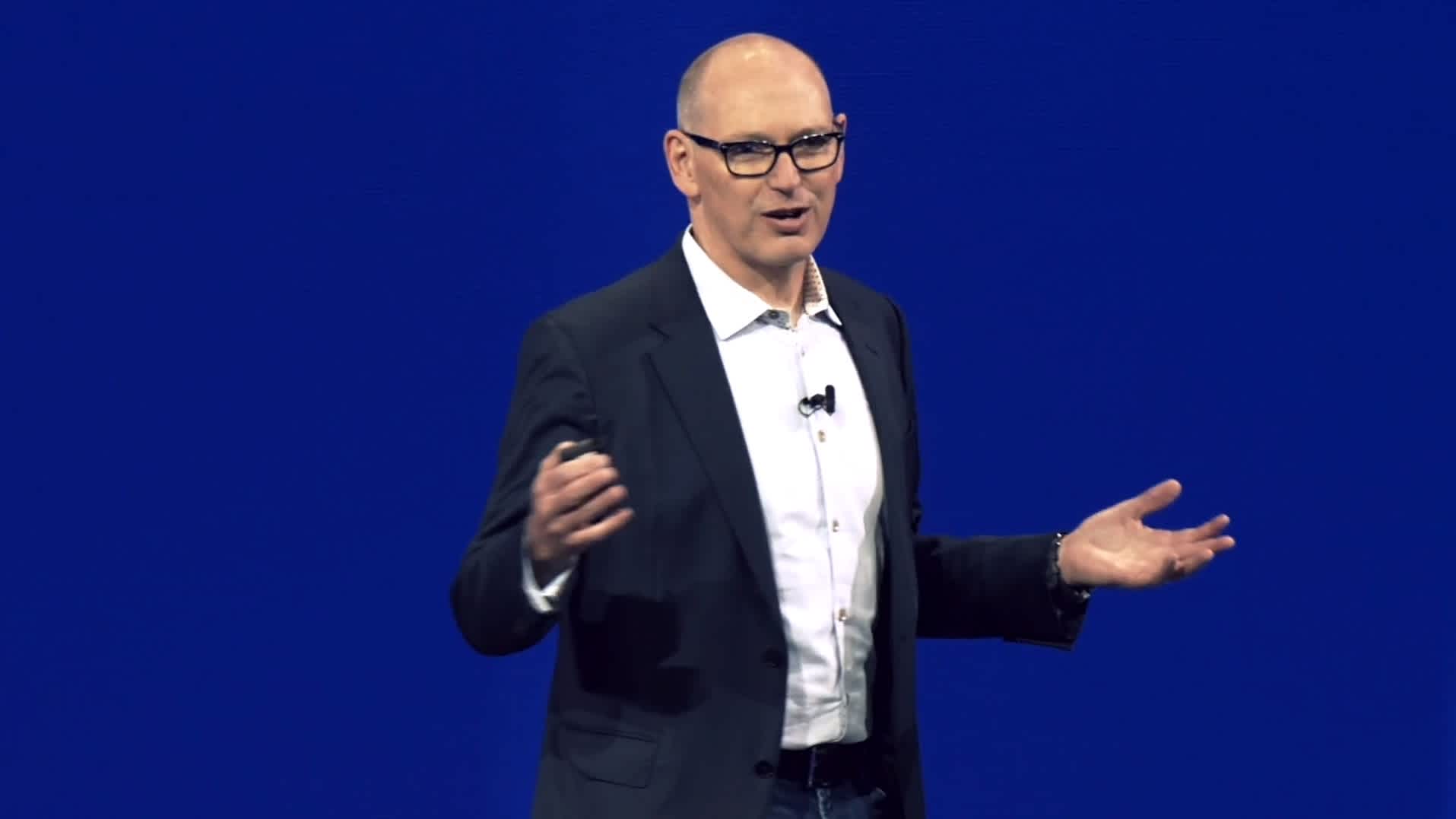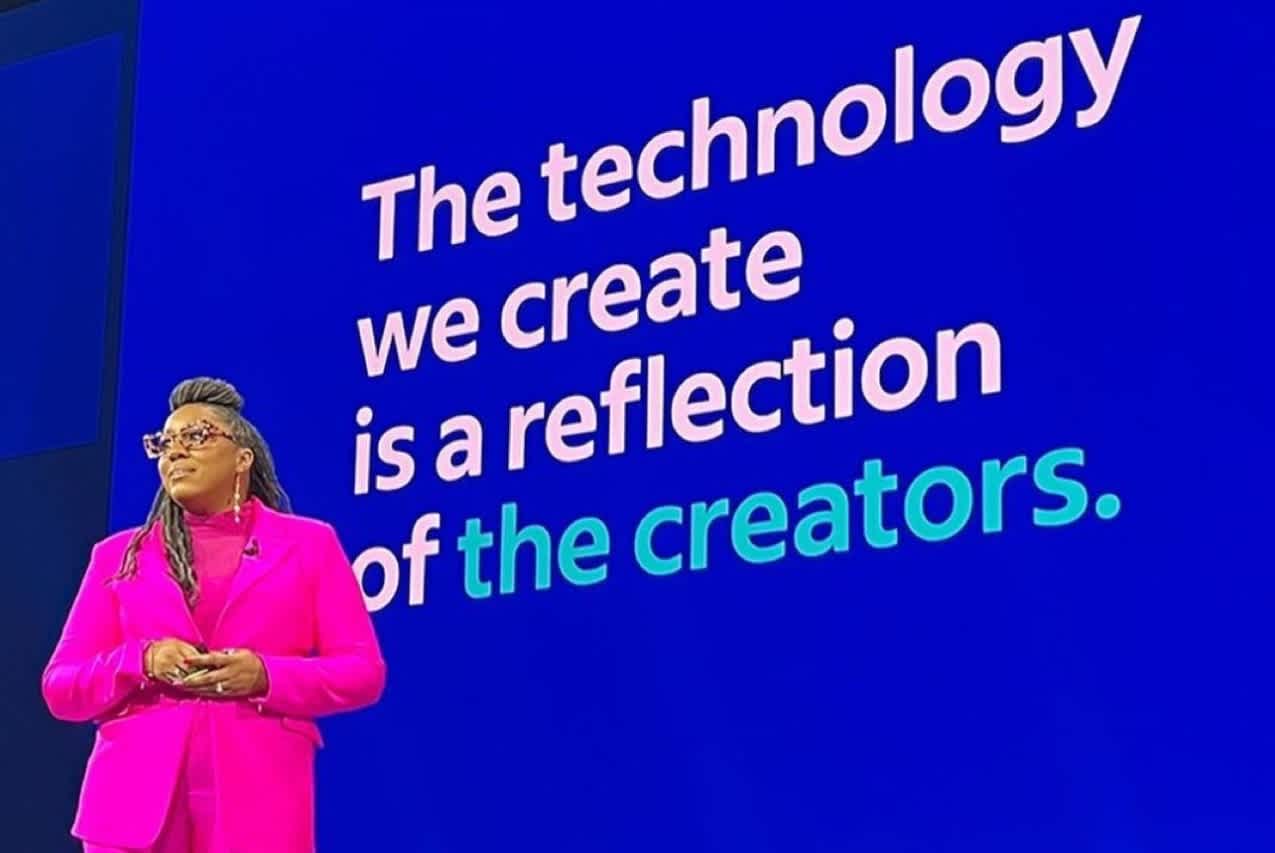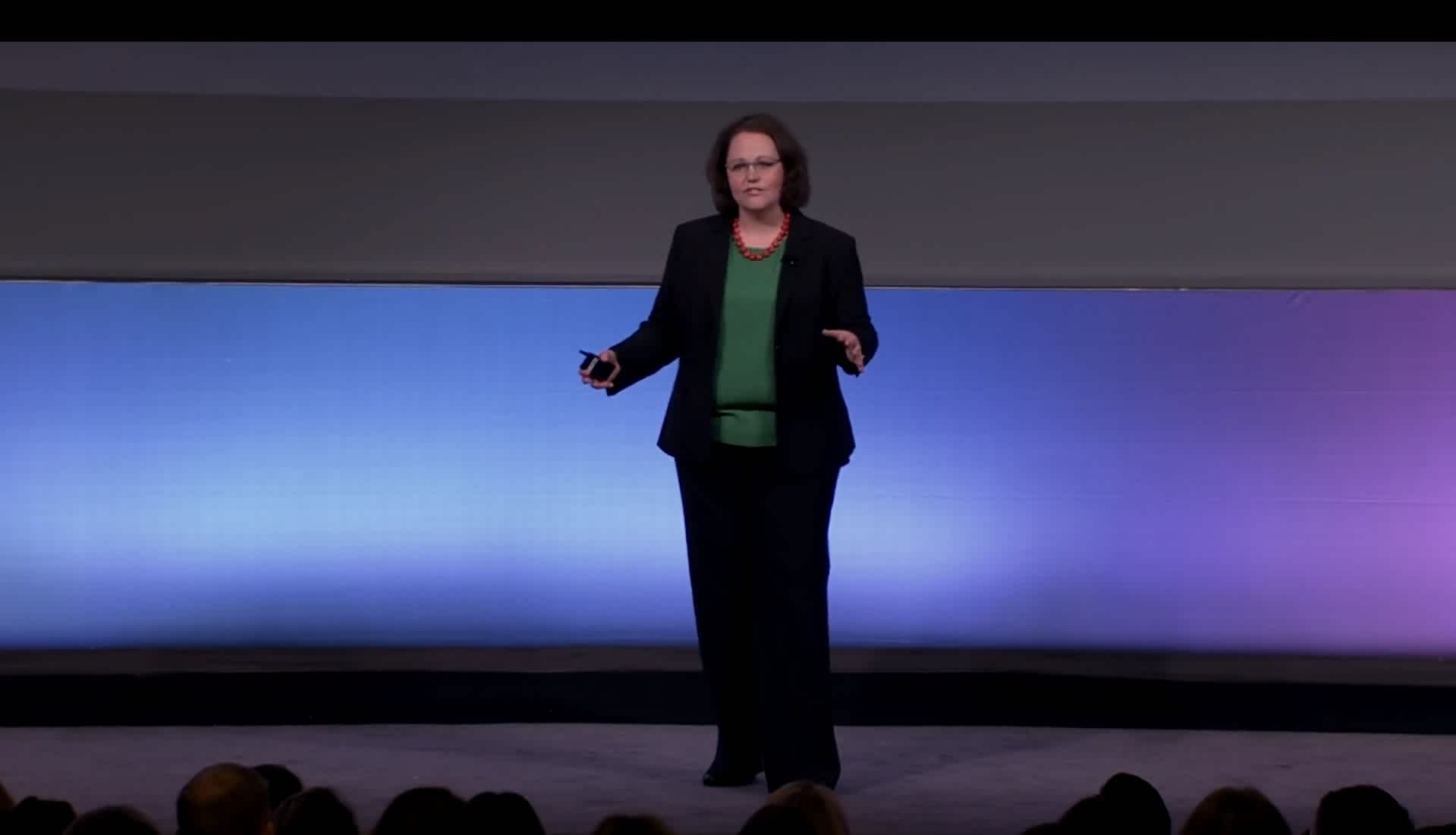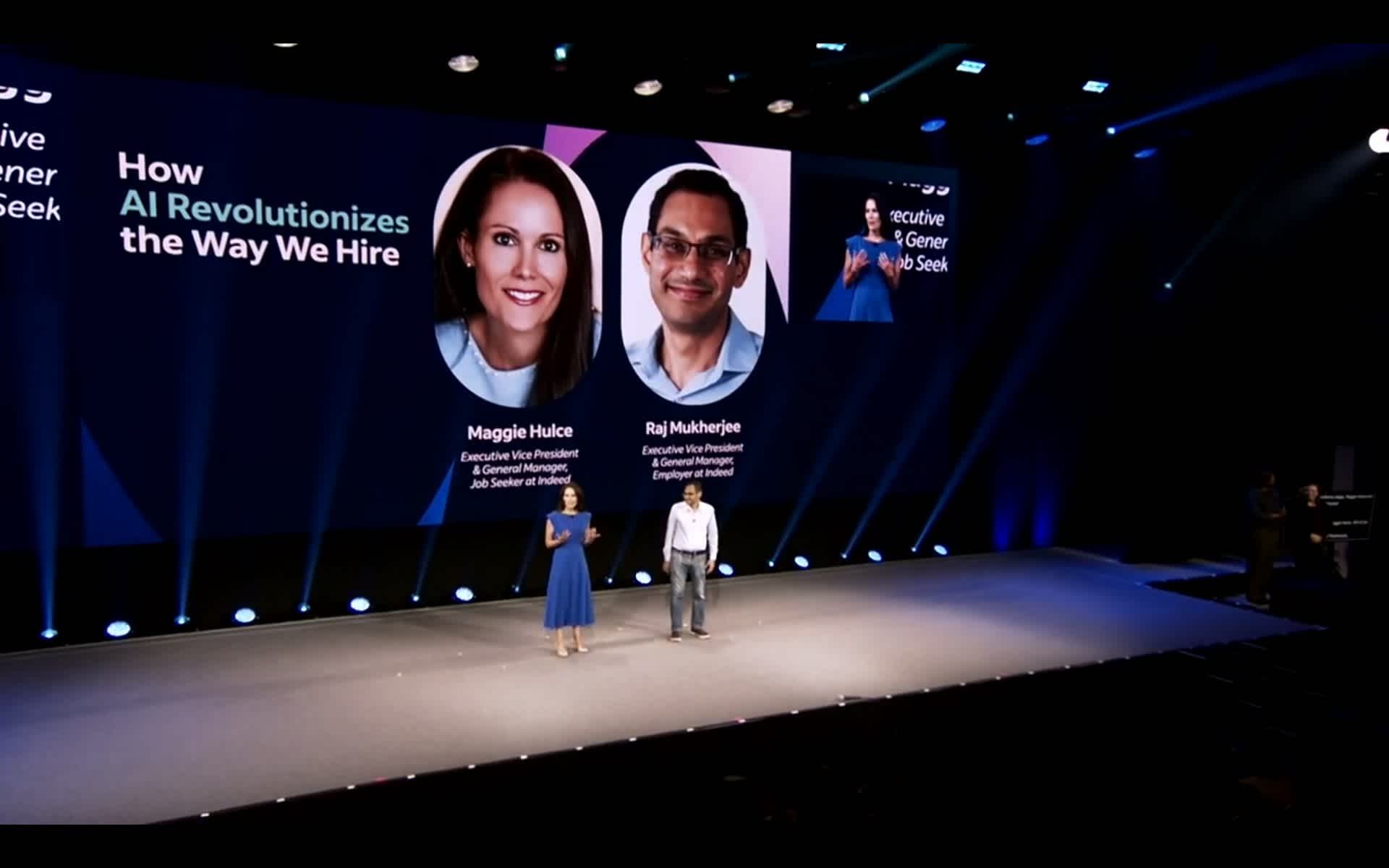On September 20-21, Indeed hosted its annual FutureWorks client event in Atlanta, Georgia, providing practical insights on how to prepare for the future of work. Hundreds of HR professionals joined Indeed CEO Chris Hyams and other Indeed leaders both in person and online to discuss the future of work with AI.
The Future of Work with AI — CEO Chris Hyams' Vision
CEO Chris Hyams kicked off the event with a keynote speech. Indeed's mission is "We help people get jobs," and Chris talked about Indeed's approach to AI, which has become a hot topic these days.
“I have considerable concerns about AI,” he said, “but I’m here to say that, despite those concerns, there is plenty to be excited about.”
The first concern he mentioned was fairness. AI is based on human-generated data and has the potential to reflect and even exacerbate human prejudices. On the other hand, he sees a promising path forward. When used responsibly, AI can ultimately help reduce inequalities in hiring.
The other concern he raised was impact on existing jobs. From a long-term perspective, it’s almost certain that technology will make the way we work and live better and “more human.” However, Chris stated that the impact will be significant for individuals whose jobs AI will take over.
As for expectations, Chris first referred to some recent breathtaking advancements in AI. In just the past few years, for example, we have seen farmers use AI to combat pests and disease, an AI-powered brain implant help a paralyzed man walk using his mind, and AI ensuring that India’s historic Chandrayaan-3 mission landed safely on the south pole of the moon.
He then emphasized that AI also has great potential when applied to helping people get jobs. As an example, Chris introduced Indeed’s AI job recommendation feature, which delivers a personalized feed of the best matches to each job seeker.
And job seekers love these jobs. In fact, they’re 55% more likely to respond to an AI recommendation than one they see in search results. Chris also introduced a function that allows companies to create job descriptions just by inputting some key details. This function is already available, and there are plans to make its application management system for companies even easier to use.
Finally, Chris said that Indeed aims to leverage AI to make job searching easier, faster, and more human-oriented, and shared his vision for this. “We’re not building a recruiting robot to replace humans. What we’re really trying to do is build a Tony Stark Iron Man suit that allows recruiters to fly, shoot lasers, and partner with AI to generate better job descriptions and send more personalized messages.”
He ended his speech by telling participants: “This is our commitment to you — to partner with you to keep humanity at the heart of hiring. We all know the world can work better. Together, we can help build a better future of work.”
To learn more, visit Indeed’s /LEAD.

Indeed CEO Chris Hyams
How Can We Ensure That AI at Work Is a Force for Good?
A session by Senior Vice President of Environmental, Social and Governance (ESG) LaFawn Davis delved into how Indeed views AI-related fairness and how they are working to resolve it.
If no such action is taken, AI systems simply reflect real-world prejudices. LaFawn cited the example of a multinational e-commerce company whose hiring algorithm penalized job applicants that had earned degrees from what were historically women’s colleges. The reason? Their machine learning models, she explained, were trained using historical data that skewed heavily toward the male demographic.
Indeed has been exploring the positive potential applications of AI —along with its ethical implications — since 2020, to codify responsible AI practices. And AI is used everywhere on Indeed.
“Indeed’s matching and hiring platform was built with fairness in mind,” LaFawn said. “We’re continuously evaluating and redesigning our hiring processes using a lens of inclusion. We’re also adopting best practices as we learn — and we’re striving to drive change across fair chance hiring, accessibility, skills-based hiring and economic security.”
Among these, Indeed is currently focusing on promoting skill-based hiring. For example, millions of Americans are automatically screened out of the recruiting process when an employer requires a college degree. Yet hiring for skills has proven to be five times more predictive of job performance than hiring for education. Indeed’s Skill Connect makes it easier for job seekers who are “skilled through alternative routes” to highlight the skills and training they’ve received through hands-on technical and professional job training programs, and then matches them with the employers who need them. Indeed is also developing AI tools to help recruiters “screen in” candidates, detecting skills in their resumes that may not have been initially considered.
At the end of her presentation, LaFawn emphasized the “human” in “human resources,” especially when it comes to determining hiring outcomes. “Some 71% of Americans oppose the use of AI in making final hiring decisions. The key to shaping a better world of work alongside AI is to take action. When we work together, we have a greater chance of ensuring that job seekers facing barriers aren’t left behind.”
To learn more, visit Indeed’s /LEAD.

LaFawn Davis, Senior Vice President of ESG at Indeed
Can AI Do Your Job? Maybe — but Not Well
The session by Chief Economist Svenja Gudell from the Indeed Hiring Lab focused on the impact on existing work. She spoke about the impact of AI on our work, citing the contents of the “AI at Work Report” released on the morning of this presentation.
The research team found that generative AI (GenAI) touches virtually every job out there, and one in five jobs they looked at had a high exposure to GenAI. They also found distinctive results, such as drivers being least affected by GenAI, software developers being most affected, and a high correlation between remote work and GenAI’s potential impact.
“A lot of times, however, what GenAI can help you with are repeatable tasks or summarizing something,” Svenja said. “It's not going to take over your critical thinking, your empathy, or your leadership — what you have to show up with when you're interacting with other people. The technology at this point is not good enough to perform a job single-handedly.”
The research shows that, despite a steep increase since last year, GenAI jobs still account for less than 1% of all job postings. While professionals are at the early stages of building and using these tools, Indeed’s AI survey of HR and talent acquisition leaders reveals that 87% are currently using AI in some way, shape or form. This speaks to what kind of impact we might see in the future. Svenja noted: “Knowledge workers can also use AI as a tool to enhance their productivity and eliminate busywork so that they can focus on the more enjoyable aspects of their job.”
She concluded her session by highlighting the positive aspects of AI, claiming: “I believe there's going to be change here, and that change is going to be hard. We're going to lose some jobs. But if history has taught us anything, this advancement in technology will also give us a whole lot of new jobs along the way.”
To learn more, visit Indeed’s /LEAD.

Chief Economist Svenja Gudell, at Indeed
The Future of Hiring Is More Human — And AI Can Help Make It Better
Executive Vice President and GM of Enterprise Maggie Hulce and Executive Vice President and GM for Employer Raj Mukherjee explained how AI can improve the job search and hiring process.
“Employers tell us every day how frustrated they feel about candidates ghosting them at all stages of the process,” Raj stated.
However, Maggie claimed that this is a two-way street, adding: “Seventy-five percent of job seekers said that not hearing back from a prospective employer after submitting an application is worse than not hearing back from a potential partner after a first date.”
She explained how Indeed approaches this problem. “To help solve this, we continue to add more ways to enable faster connections on Indeed, using AI to speed up the process. Candidates who receive a reach-out within four hours of their application are 95% more likely to lead to a hire, versus those who don’t receive a reach-out until a week later.”
Maggie and Raj then introduced new AI-powered products that speed up the recruitment process. With Matched Candidate, for example, Indeed’s AI recommends candidates that match your requirements when you post a job on Indeed. You can choose the candidates that are the best fit and invite them to apply with a single click.
“When you reach out to matched candidates, they are 17 times — yes, you heard me right, 17 times — more likely to apply to a job than if they just found the job on their own. It feels nice to be wanted!” Raj said.
Indeed’s next AI-powered product offering, to be online in spring 2024, is called Smart Sourcing. Smart Sourcing combines the best of Resume Search and Matched Candidate into one cohesive experience. Together with the resume rankings Matched Candidate produces, the system will now also provide an AI-generated summary for each candidate — Candidate Highlights — to help cut through the noise by providing high-level guidance on what stands out about a candidate’s experience. An employer that wants to know more can use Indeed’s new AI-powered Smart Message feature to instantly generate a personalized reach-out.
Furthermore, Indeed’s AI Job Description Generator tool has already been used by 800,000 Indeed clients to describe over two million jobs.
“Writing a job description normally takes hours,” Raj said. “In this case, within minutes, you get a comprehensive job description tailored to attract the best candidates for the position.”
“After just six months of beta testing,” he continued, “job descriptions created with Indeed AI saw a 16% increase in applications. In the future, Indeed will piggyback this offering with an automatically generated job score, which instantly gives employers metric-based feedback on how likely their listing is to generate leads.”
Once a description is completed, Indeed AI also highlights sections that may need improvement to make the posting more competitive.
Lastly, Maggie and Raj mentioned that hiring is a team task, and Indeed will work on making that collaboration easier. “So our future vision includes a reimagined Employer App that helps you stay connected no matter where or how you work,” Maggie explained, and concluded the presentation by asking for an assist from the event’s participants. “AI can and will make hiring way simpler and faster, but together we can ensure the ‘human’ is always at the heart of hiring.”
To learn more, visit Indeed’s /LEAD.

Executive Vice President and General Manager of Enterprise Maggie Hulce and Executive Vice President and General Manager for Employer Raj Mukherjee at Indeed